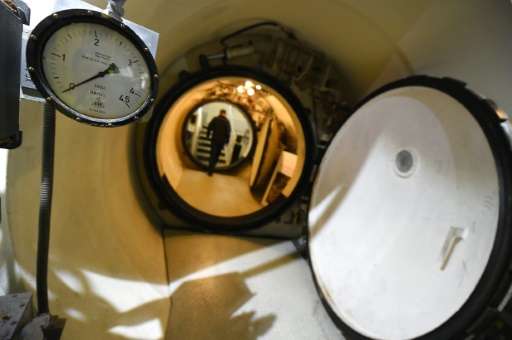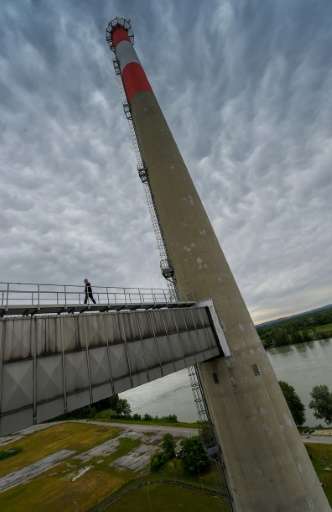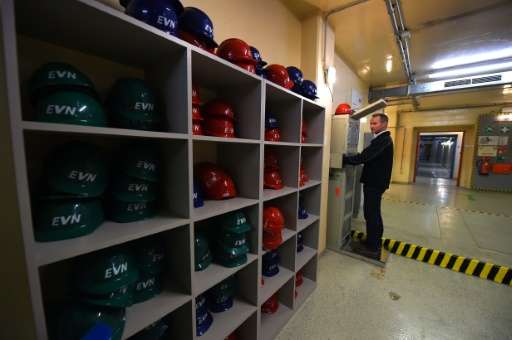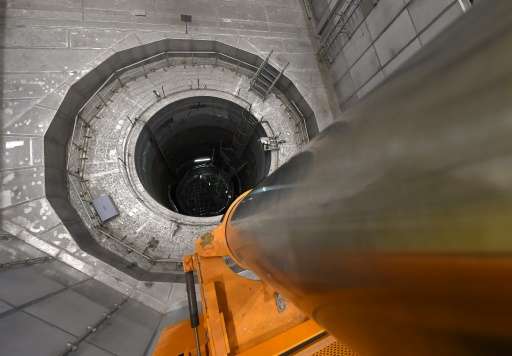Green Austria on warpath against nuclear power in Europe

Austria's announcement Monday that it would challenge state aid for a new nuclear plant in Britain marks the latest step in the country's solo campaign to roll back atomic energy in Europe.
Since the late 1970s, Austria has been fiercely anti-nuclear, starting with an unprecedented vote by its population that prevented the country's only plant from providing a watt of power.
With the exception of Italy, Austria is surrounded by countries with nuclear power, although Germany, to the north, has vowed to phase out its plants by 2022.
"It's an energy source from the last century," Environment Minister Andrae Rupprechter told AFP in a recent interview.
"It is outdated because it's a non-sustainable, high-risk source that is only competitive with an unjustified subsidy," he added, referring to the Hinkley Point C contract in western England.
Austria filed its complaint at the European Court of Justice after Britain proposed 17 billion pounds (24 billion euros, $26.5 billion) in state funds to help build two reactors, projected to cost 24.5 billion pounds.
Rupprechter is contesting a determination by the European Union's executive Commission last October, which found that the deal was compatible with EU state aid rules.
For the minister, the aid is "illegitimate".
"If we establish high subsidies for nuclear energy, we will never have an even competition situation," he said.
"The future lies in renewable resources and we have to create a level playing field to give these resources the fairness to compete in the market."
More than three-quarters of Austrian electricity comes from renewable sources, which also make up 34 percent of its total energy production.
It is already far beyond the EU target, which calls on renewables to meet 20 percent of energy needs by 2020.
Home to plenty of sun, wind and water, the nation hopes to increase that amount to 50 percent by 2030.

Since January, all imports of nuclear power have also been banned.
As the EU moves toward a single energy market, and with a UN climate conference looming in Paris in December, "we want to use the discussion to establish a protocol to support renewable energies", said Rupprechter.
Ghost plant
Four decades ago, Austria looked set to join the nuclear power club with the construction of a plant in Zwentendorf, near Vienna.
Today, the concrete giant sits in a sea of green fields and wild flowers by the Danube.
An eerie silence hangs over its control room, whose walls are covered in what are now old-fashioned switches designed in a long-gone era.
No safety uniforms are needed to wander around the huge reactor vessel: there is not a becquerel of radioactivity here.
Zwentendorf was meant to be the first of several planned nuclear plants destined to supply electricity for six million households—nearly the country's entire population at the time.
But after a knife-edge referendum in November 1978, the one-billion-euro ($1.1-billion) project stayed offline and Austria's nuclear age was over before it had even begun.
Within a month of the vote, the government passed a bill prohibiting nuclear energy to produce of electricity.
Zwentendorf lay idle for several decade before it was bought in 2005 and then restored by Austrian energy company EVN.

The building now serves as a training facility for international nuclear engineers and occasionally as a film set. From autumn onwards, it will also offer courses on how to dismantle nuclear plants.
"We think this is the perfect place, a lifesized model where you can learn how to deconstruct a reactor bit by bit in a safe environment," said Stefan Zach of EVN.
Demand should be great, he says, with big European nuclear producers such as Germany phasing out atomic power.
Nuclear fear?
However, most of Austria's other neighbours—including Hungary, Slovakia and the Czech Republic—want to expand their nuclear facilities.

Austria has already warned it will veto any nation attempting to obtain EU subsidies for nuclear programmes.
The government has repeatedly highlighted what it stresses are nuclear energy's greatest problems: the disposal of radioactive waste and the danger of accidents such as Chernobyl or Fukushima.
But for some, abandoning nuclear power is based on misguided fear, and deals a blow to efforts to curb climate-altering emissions from fossil fuels.

Nuclear energy should be supported, said Austrian physicist Walter Kutschera.
"The important thing is to know how to control it."
© 2015 AFP





















